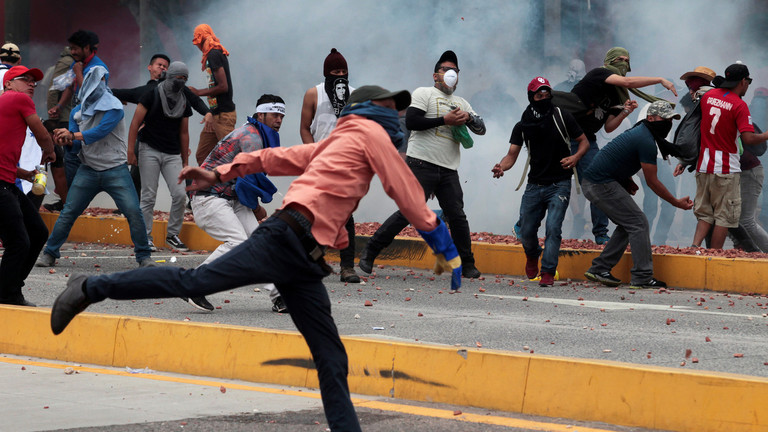
Riots against President Juan Orlando Hernandez have been raging in Honduras for several days. But the media press coverage has been very different from protests against Venezuela’s Nicolas Maduro. And it’s not hard to see why.
Unlike Venezuela, Honduras is a close US ally.
There have been multiple reports of violent clashes between demonstrators and state security forces since the riots broke out last week over Hernandez’s privatization proposal. Hernandez eventually dropped the plan, but the riots have since morphed into a more generalized protest against his government’s corruption and unpopular policies.
On Monday protesters set fire to containers belonging to the Dole Fruit Company in a rural area near the small village of Guadalupe Carney. Days earlier on May 31, protesters attacked the US Embassy in the Honduran capital, Tegucigalpa. About 12 tires were set alight near the mission’s entrance after having been doused in gasoline.
Hernandez’s deeply unpopular proposals to privatize the country’s healthcare, pension, and education systems add to a litany of public grievances against his government, which was elected in 2017 via an election that was widely deemed fraudulent, including by the pro-Washington Organization of American States. In addition to growing unpopularity, according to major human rights organizations such as Amnesty International Hernandez’s government is one of worst human rights violators in the hemisphere. And there is growing evidence that the country has degenerated into a narco-state.
Both the US Embassy and the Dole Fruit Company are poignant examples of US power across Latin America. For decades large agricultural companies such as Dole and Chiquita have decimated the livelihoods of small farmers throughout the region – after all, how could they compete with such multinational giants that receive substantial subsidies from the US government (in an ironic violation of the principles of “free enterprise” and a “level playing field”).

